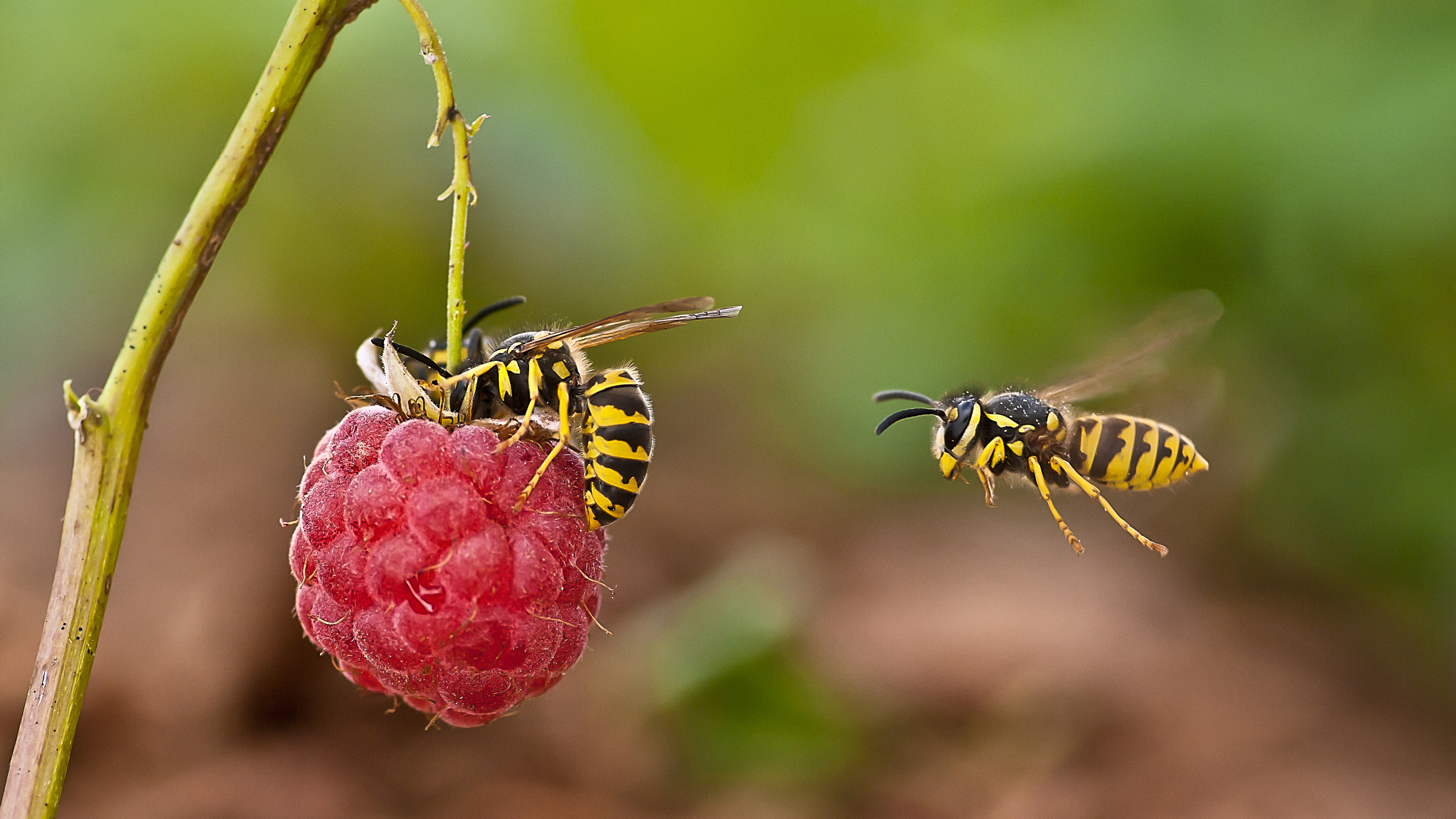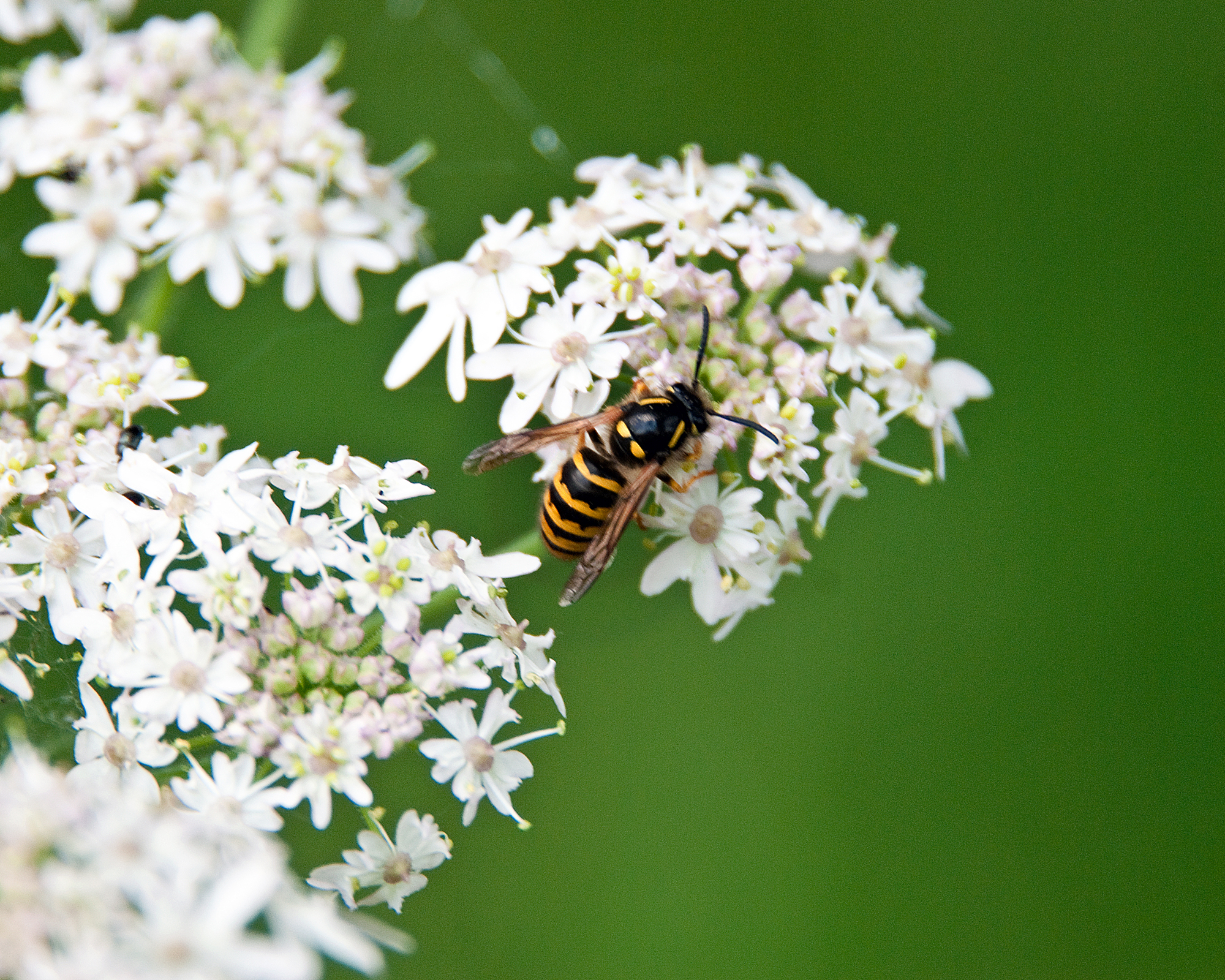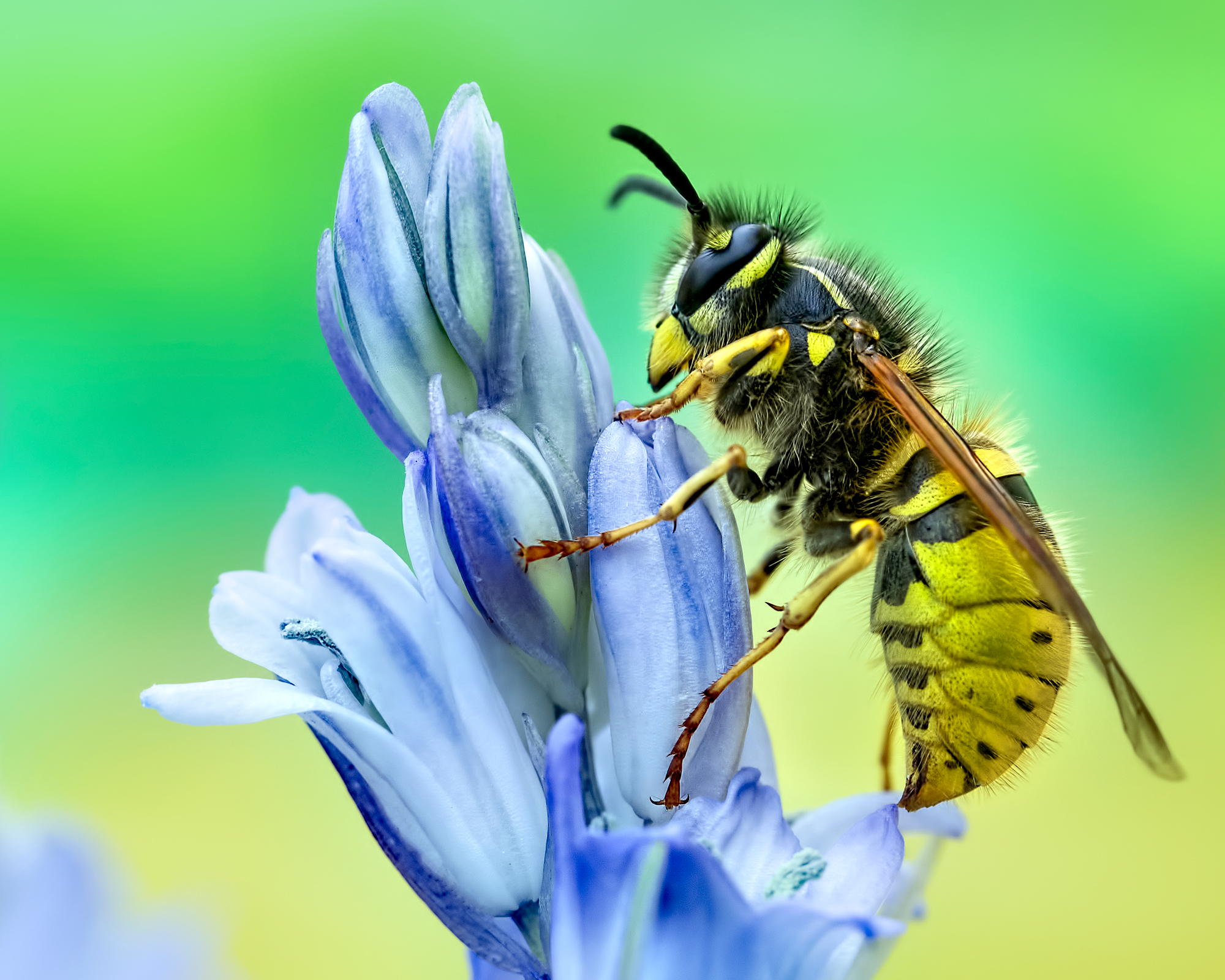The one thing you should do to deter wasps from your garden this summer – and it's completely natural
Wasp infestations are predicted for this July and August – but there is a very effective and simple measure you can take to keep them away

Wasps are a nuisance in the garden, and, according to data* gathered by experts, this summer will see a bumper crop of wasp infestations in our backyards. Areas that have seen wetter June weather than usual may see that the wasps emerge with a vengeance throughout July and August – the months when they are most common during the warm season.
The problem with the most common tips for deterring wasps from gardens is that they're not very practical. Of course, keeping food and drink strictly out of the garden will deter them, but what about wanting to enjoy your outdoor dining ideas? It turns that there's a better, and all-natural, way to deal with the wasp problem – and it's been proved to be effective by science.
The one thing that works for deterring wasps from gardens

The effective and natural measure in question is actually a blend of essential oils. A study published in The Journal of Pest Management Science tested several essential oils for their wasp-repelling faculties and found that a wide range of essential oils is moderately effective at repelling various species of wasps. These include: clove, pennyroyal, lemongrass, ylang ylang, spearmint, wintergreen, sage, rosemary, lavender, geranium, patchouli, citronella, Roman chamomile, thyme, fennel seed, anise and peppermint.

However, the study also found that two specific combinations of essential oils 'totally blocked the attraction of vespid workers'. These combinations were: a clove, geranium and lemongrass mix and a clove, geranium, lemongrass and rosemary mix. You can combine these essential oils, apply them to a cotton ball, and rub them into cracks and crevices in trees, garden furniture, or any other spots wasps frequent. You can also try spraying larger surfaces by mixing the essential oils with water in a spray bottle, although this is likely to reduce their effectiveness.
The one thing you must never do if you have a wasp infestation
One or two wasps now and again do not class as an infestation, but if you get dozens swarming around your garden every day, you may have a real problem. What you must never do is try to kill the wasps, or worse, locate their nest and attempt to destroy it. Wasps have a highly sophisticated communication system between each other – if one sends out a distress signal, others will come to its rescue, and you could end up seriously injured by their stings.
- Read more: Expert advice on how to get rid of ants
If you suspect a wasp infestation, call out professional pest control – and check with them that whatever pest control measures they'll be using won't harm other pollinating insects you want to attract as part of your wildlife garden ideas.
* Data gathered by the insurer reveals that JG Pest Control - which provides a pest control service for Aviva Home Insurance
Anna writes about interior design and gardening. Her work has appeared in Homes & Gardens, Livingetc, and many other publications. She is an experienced outdoor and indoor gardener and has a passion for growing roses and Japanese maples in her outside space.
